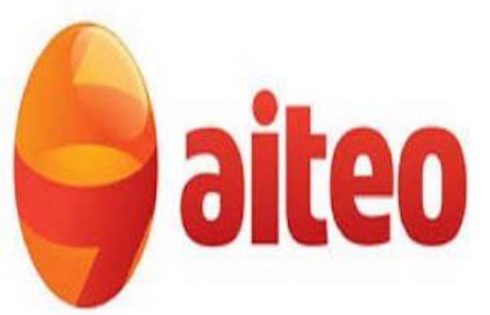By Gbenga Adedayo
Indigenous oil producer, Aiteo Eastern E & P Company has been dragged to court by Shell and group of Nigerian banks, including Zenith, Fidelity and GTB banks over loan default.
They have accused one of Nigeria’s largest oil producers of defaulting on loan repayments that stand at more than $900 million and are locked in a court battle to reclaim the money, legal documents show.
The previously unreported impasse stems from a deal that Aiteo Eastern E&P Co. did six years ago to purchase a major interest in one of the nation’s most prized oil blocks and a pipeline for $2.4 billion. Zenith Bank Plc, Fidelity Bank Plc, Guaranty Trust Bank Plc and other Nigerian lenders loaned the company $1.5 billion to support the acquisition, while Shell — the former operator of the assets — provided $504 million in financing.
The oil major and the banks filed arbitration claims against Aiteo in December in their efforts to recoup the funds. The legal actions came 13 months after Aiteo obtained an injunction from a federal court in Nigeria’s capital, Abuja, that prevented its creditors from collecting on the alleged debt. That order is still in force.
Aiteo, controlled by Nigerian tycoon Benedict Peters, denies being indebted and in default. It argues that the lenders are obliged to restructure its repayment schedule due to unforeseen “events of force majeure,” including rampant crude theft and pipeline leaks, according to the lawsuit it filed in Abuja, where it was granted the injunction.
‘Wrongful Deductions’
The company also claimed that one of the banks twice refused to follow its instructions to fund an account used for paying suppliers and the lenders “applied wrongful deductions, charges and debits.” Peters’ company has already repaid more than $1.2 billion to its creditors, including more than $200 million to Shell, Aiteo’s court filings claim.
The dispute “relates to Aiteo’s indebtedness to the lenders,” the financiers’ Lagos-based law firm, Aluko & Oyebode, said by email.
The outstanding amount stood at $910 million at the end of September, including $233 million owed to Shell, according to documents the company and the banks filed on Dec. 11 at the International Chamber of Commerce in London. The claimed debt increased from $288 million in October 2019, when the lenders’ Nigerian lawyers sent Aiteo a letter notifying the company it had “defaulted and continues to remain in default.”
Shell and the banks spent “many months” trying “to identify restructured terms that were mutually acceptable,” but those discussions were unsuccessful, the solicitors said in a March 18 email. Their clients are “currently focused upon protecting their legal rights under the loan agreements, while defending themselves against other baseless allegations by Aiteo,” they said.
‘Deliberate Misinformation’
Aiteo didn’t respond to multiple requests for comment from Bloomberg. The company did release a statement to the Nigerian media, which was reported on by several publications, accusing Shell of launching a campaign “of deliberate misinformation and incorrect reportage aimed at discrediting and tarnishing our reputation.”
Shell declined to comment beyond the statement issued by Aluko & Oyebode.
The standoff with Aiteo adds to the legal headaches facing Shell’s Nigerian operations.
Already this year, a court in the Netherlands ruled that a unit of the Anglo-Dutch group was liable for environmental damage in the West African country and the U.K.’s Supreme Court allowed thousands of Nigerians to sue the company in London over pollution. Shell also began arbitration against Nigeria’s government in February after repeatedly failing to overturn a 2010 court order to pay compensation to a community over a historic pipeline rupture.
The tussle over the loans took a new turn last month, when Aiteo persuaded a local court to restrict Shell’s access to its Nigerian bank accounts. Aiteo argued that the energy giant misrepresented the condition of the pipeline it sold in 2015 and then under-counted the volume of crude that was being pumped to a Shell-run export terminal.
Shell’s actions have made it “practically impossible” for Aiteo to meet its repayment obligations, said the Nigerian company, which is demanding billions of dollars in damages.
Shell has dismissed the accusations as baseless and appealed against the freezing order.
The banks and Shell want an ICC arbitration tribunal to declare that Aiteo is in breach of its financing contracts through defaulting and the demanded sum should be paid to them.
A U.K. court granted Shell and the lenders a temporary injunction in December ordering Aiteo to stop its lawsuit in Abuja, after they argued that the loan agreements prescribe arbitration in England to resolve any disputes and the Nigerian court has no jurisdiction over the matter.
African Finance Corp., which administers the banks’ loan agreement, is participating alongside the lenders in the court cases and arbitration proceedings.
-Bloomberg


